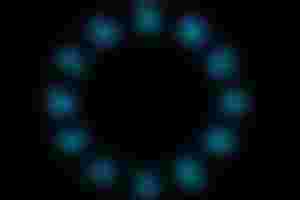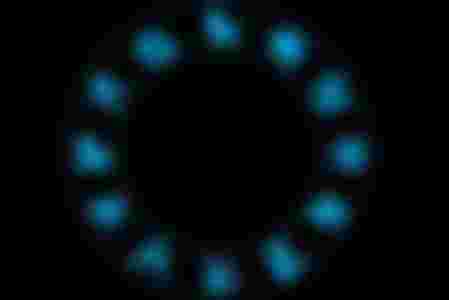Believe it or not, astrology has existed for 5,000 years and to this day it has not lost its popularity and followers even this modern age of technology and gadgets! So let's find out when astrology originated! ...
First of all, let's say what astrology is ... Astrology (Greek αστρολογία - the science of stars) is a pseudoscience that positions, relationships and movements of planets and other celestial bodies in relation to the zodiac signs and constellations, observed for the earth, connects with the basic characteristics of individuals (individuals) and their interaction with society, nations, world events, etc.
Since man is the center of attention in astrology, it is clear why there is so much interest among people. Millennia earlier, as well as today, they wanted to know their possibilities, predispositions, weak points.
In the essence of astrology, there is a human attempt to bring order to chaos, the need to overcome the unpredictability of life, as well as the not so obvious search for identity, for our place in the world.
Where the human race would seek answers to its countless questions, if not in something greater than us, in the universe and its secrets. Attempts to unravel these secrets over time have created a doctrine of the movement of celestial bodies to interpret their impact on humans.
Today, astrology has been declared a pseudoscience, which has no proven scientific basis, but seems to be used more than ever. For some as a form of entertainment, while there are those who really rely on astrological predictions and use them as guidelines when faced with a life challenge. She had an undoubted influence on various historical figures, and thus on the course of history itself.
When did astrology start?
It is established that astrology, which is reminiscent of today, originated in Mesopotamia 5,000 years ago.
The Babylonians passed it on to the Greeks, when Alexander the Great conquered the East, and through the Greeks it reached the Romans, Western Europe, the Arab world ... It was not difficult to interest the whole world.
Initially, astrology was an inseparable part of astronomy, so it was practiced by different peoples around the world: Chinese, Egyptians, Greeks, Romans, Arabs, as well as the peoples of South America, that is, extinct civilizations (Aztecs, Mayans, Incas).
The cradle of Western astrology is the old Middle East, where the first observatories emerged - the Sumerian ziggurats. The original Mesopotamian astrology (protoastrology), quite similarly to other cultures, was based on a simple observation of the heavens in search of a sign, which could in any way predict important events in the kingdom.

Records of astronomical observations and signs were found among other texts, written on clay tablets in cuneiform. The most extensive collection of Enum Anu Enlil dates from the 2nd millennium BC.
However, if we pay attention to the broader meaning of astrology - the search for meaning in the sky, we can say that it has existed since the existence of conscious human beings.
The realization that there is a connection between the lunar cycle and the change of seasons was the reason for studying the laws of the sky. The calculation and prediction of weather conditions became important for societies that lived from cultivating the land.
Astrology was originally used to predict wars, natural disasters and everything that affected the lives of a large number of people. It was used by the rulers in making major decisions that had great consequences. We can safely conclude that history would not have followed the same course without the influence of astrology. Before the 20th century, astrology was often equated with astronomy. That is why it is not strange that she was also interested in great scientists - Nicolaus Copernicus, Galileo, Isaac Newton ...
It was studied by Greek philosophers, mostly Plato, and it also had an influence on the development of early psychology, since it was often the subject of conversation between Freud and Carl Gustav Jung.
In modern times, the most popular use of astrology is to predict the life events of an individual. In addition to predicting the future, astrology also determines personal characteristics, character.

The ability to discover what the future holds sounds tempting, but still it wouldn’t be bad to include critical thinking and reason the next time they tell us what kind of person we are based on our zodiac sign. We would all agree that there are many other, more reliable ways to discover something new about ourselves.
Thank you for reading my article ... I hope that you enjoyed ...
I send you a big greetings!


I don't really believe in astrology, in the story "that's what the stars say", etc. From astrology, I only know that I am in the sign and subsign of Sagittarius: D.